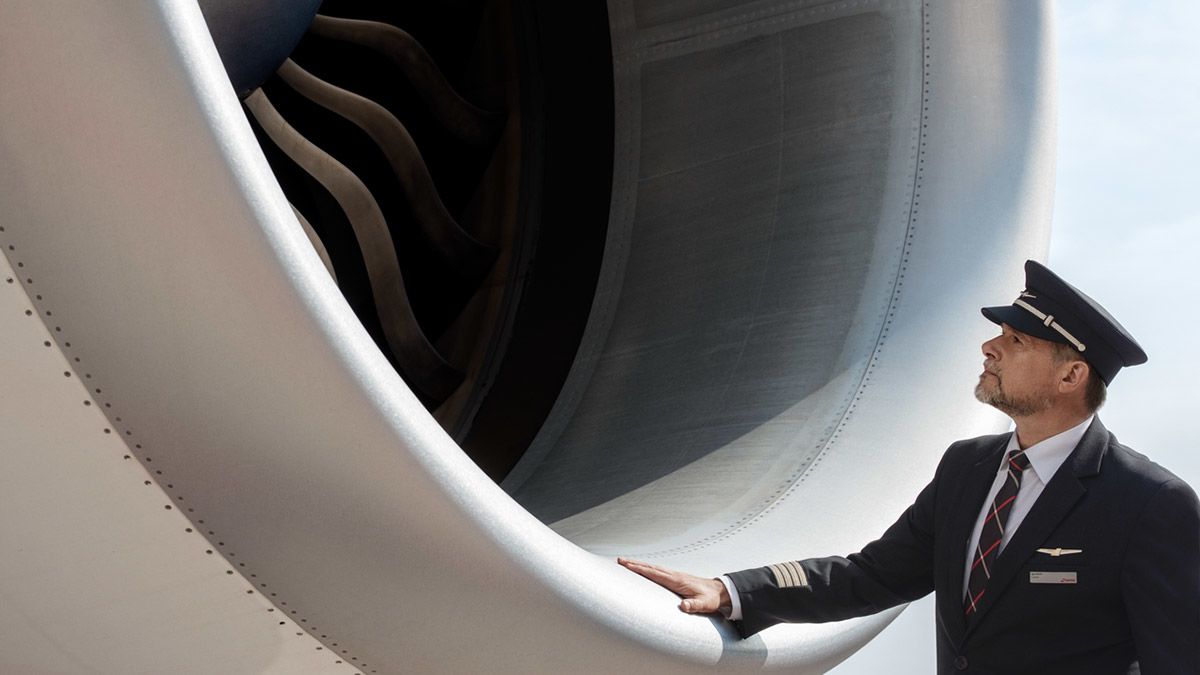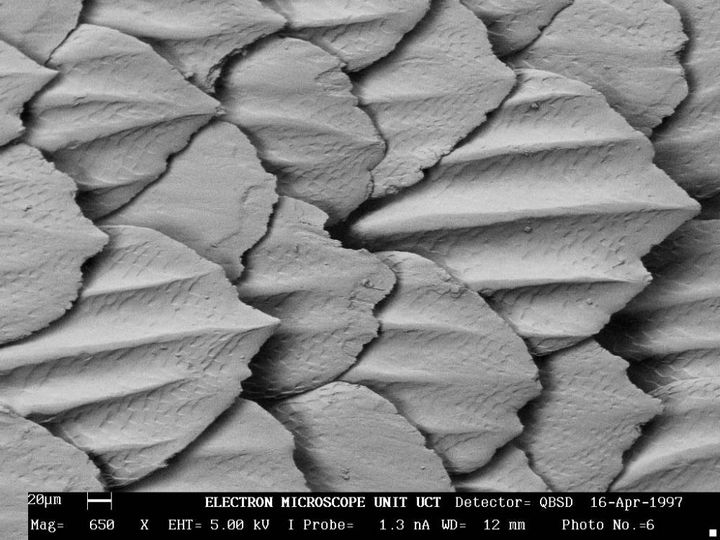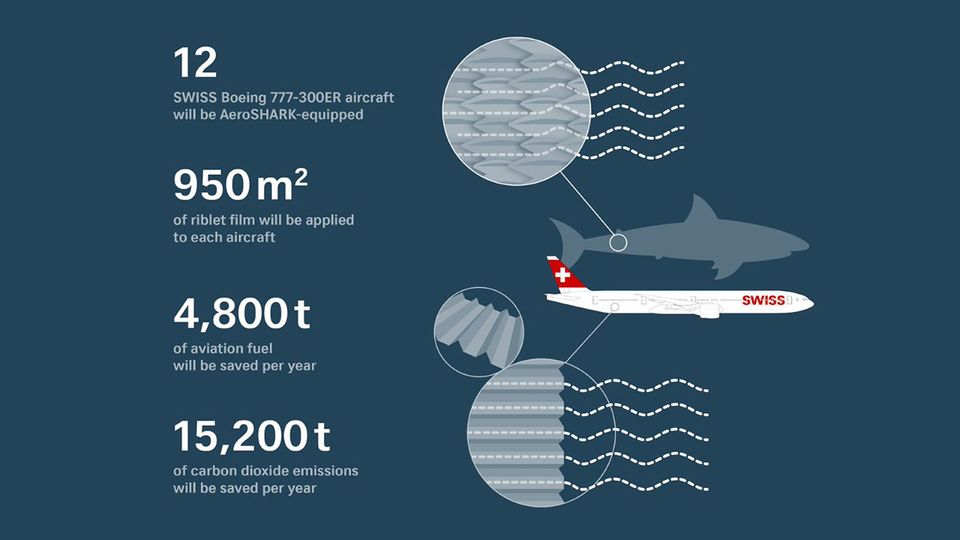Why the surface of this jet feels like the skin of a shark
There are no snakes on this plane, but it does have a unique feature with teeth...

What does an apex predator lurking in the depths of the sea have in common with a gleaming Boeing 777 soaring through the sky? At first glance, not a lot, but the former could hold the secret to unlocking a new era in aviation.
After nearly 120 years of looking to birds to inspire faster, more efficient aircraft, designers are now diverting their gaze to a very different creature, one that has evolved over millions of years to glide through the sea as well as a bird flies in the sky: the shark.
Inspired by dermal denticles of sharks – tooth-like scales which reduce drag and turbulence, allowing them to swim faster and quieter – the AeroSHARK “riblet film” created by Germans Lufthansa Technik and BASF could be the key to shrinking carbon footprints.

© Trevor Sewell/Electron Microscope Unit, University of Cape Town
Swiss will be among the first carriers to trial the high-flying film technology, with a roll out set to begin across its fleet of 12 Boeing 777 aircraft from mid-2022.
By applying 950 square metres of the film, which features millions of bumps – or riblets – just 50 micrometres high, to the fuselage and engine nacelle surfaces of an aircraft, the airline says it could lead to fuel savings of just over one per cent.
Although diving into the depths with hope of taking aviation to the next level sounds bizarre, this isn’t the first time sharks – or other animals – have been a source of jet inspiration.
Biomimicry, which is applying natural designs into human engineering, is everywhere.
Back in 2013, Airbus introduced “sharklets” – vertical wing-tip extensions inspired by a shark’s dorsal fin – to its A320 aircraft. Mounted vertically at the wingtips, the aerodynamic surfaces were added to reduce the size of the wingtip vortex, and reduce induced drag.
Another perfect example of biomimicry is the shinkansen bullet train of Japan, which achieves its blinding speeds of over 300km/h thanks, in part, to the elongated beak of the kingfisher.
While the jury’s out on whether the panda could solve any of life’s great problems, the growing trend for biomimicry does make you wonder where the next innovation will come from.

Singapore Airlines - KrisFlyer
14 Jan 2014
Total posts 340
There is something fishy about this to me… LOL
Hi Guest, join in the discussion on Why the surface of this jet feels like the skin of a shark